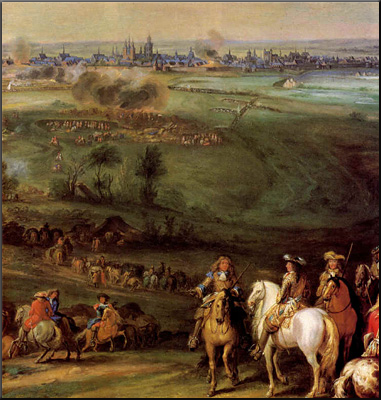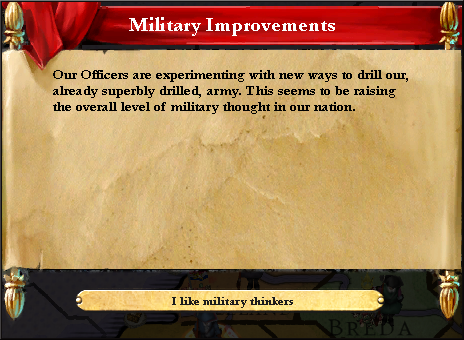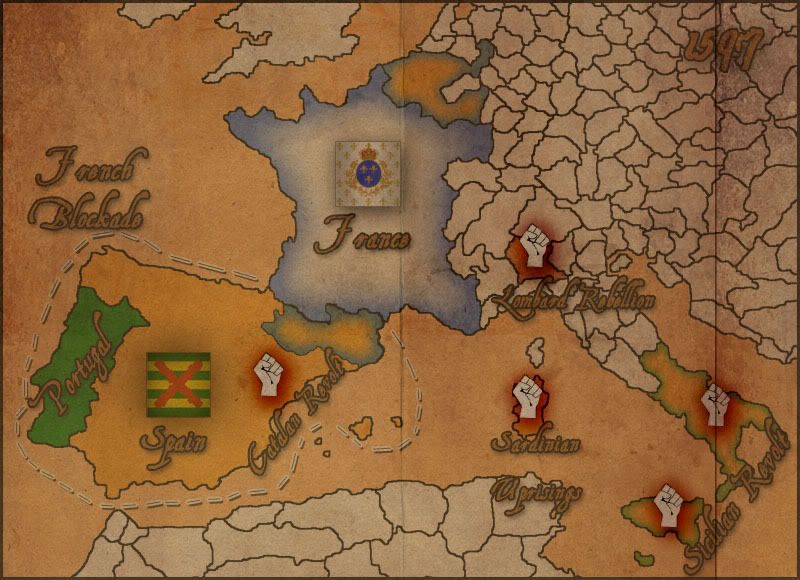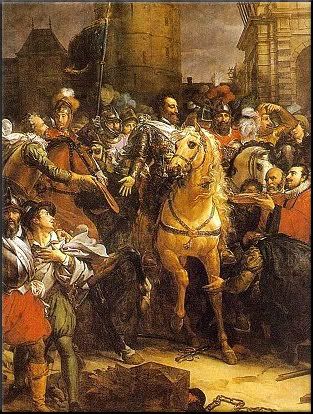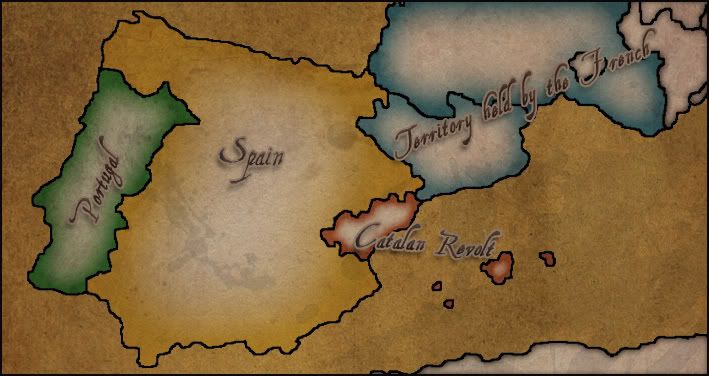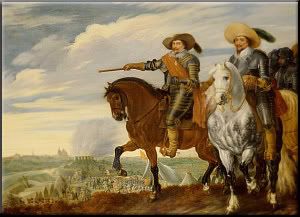Chapter IIX – Twilight of an Empire
Henri leaves Flanders for Spain
[Note] I advice the readAAr to listen to the mood music, really gives a great feeling to the reading!
***
The Glorious Relief
***
Never before had an army crossed France in such haste. Never before had so many soldiers, cavaliers and dragoons been led across the French border and never before had they carried such a message of invincible will. That said, it still took Henri three months to cross the country from Flanders to the Béarn. From Brugge to Pau soldiers were conscripted and equipped with sword, pike and musket. It had nearly crippled the French treasury, but every man regardless of religious creed that razed to save the French grip on Catalonia was armed to the teeth and his mind sharp, focused on war and only that kind of war that is fought without mercy.
Status of the Spanish front, 1598/1599
By October 1598, Henri stood before the walls of Huesca where Pedro Enríquez de Acevedo had assembled the last army of Spain. Thinly it had been spread before, engulfing what weak garrisons the French could muster throughout Catalonia, but now as the day of All Saints neared, it had gathered again to drive one single deadly stroke at the approaching French invader. As the Spaniards arranged themselves on the rugged plain outside the city, Henri galloped forth to address his men. Many accounts of varying credibility has been preserved for later times, but chief amongst them is the account of the later duc de Sully.
[Except] The king now rode past, saluting the regiments and squadrons that had followed him and us throughout almost 5 years of hardships of war and combat. First he addressed the Catholic companies who, although in minority, encompassed a sizeable part of his majesty’s force. Thus the king spoke: “My friends! So many times have we, we happy few, been assembled with such a duty to fight. Remember, my comrades – for we are comrades in arms and brothers in faith, remember who you have before you. We face the spawn and rascals and thugs who would have our beloved native land enslaved on the false pretext of religion. I say to you [the king took deep breath] ride, ride with me and let the estandards of our holy land fly before you. And as you ride sing until your hearts burst, sing the Te Deum, proclaim the glory of our lord saviour Jesus Christ! Praise God with great praise, for you have been destined to liberate our land on a foreign soil. Praise God and let none come between you and victory!” To this, the catholic regiments roared with delight and the lust for battle shone like stars in their eyes.
***
Then the king positioned himself before the Huguenots. His horse reared as the majesty spoke to the rough and grim troopers who had cast the Spaniards out of France and Flanders, the soldiers of the French reformation. Silence had fallen over the French army and only the soft fluttering of the many banners could be heard. “Men, friends and oath comrades! For long have we fought for this day to come. For years have we tolerated the insults, demeans and violations forced upon us by the Papist slave the king of Spain. For years has this rascal of rascals gotten away with such heathenry behaviour. This day, this very day that stands before us, we will be granted satisfaction. I have every faith in you, my brothers. Yes, I see you all as my brothers; I see all of France as my brother, but you, you faithful few are dearest to me. Fight with your brethren my friends! If the Te Deum outreaches the cries of dying Spaniards, then shout the blessed words of the psalms until all that can be heard on this very field is the words of God Almighty! Remember this day in your hearts, for today we fight and die for France and for the blessed French Reformation!” The king’s horse reared and he spurred it back and forward before the army, accepting its affection. At last his voice rang out once more to the army in unity.
A slow rumble of the drums could be heard as the king of France spoke once more. The air was filled with the excitement of 23,000 Frenchmen and the ground shook with the shock of pounding drums.
"Sons of France! If you today run at risk with me, I will also run at risk with you; I will be victorious or die. God is with us. Look at his and our enemies. Look at your king. Hold your ranks, I beg of you; and if the heat of battle makes you leave them, think also of rallying back: therein lies the key to victory. You will find it among those three trees that you can see over there on your right side. If you lose your ensigns, cornets or flags, do never lose sight of my panache; you will always find it on the road to honour and victory." [1]
The roar of the battle cries of France mixed with the rising thunder of the hide covered battle drums and high-pitched song of the flutes and throughout the Great Army of Flanders praise of God rose to the skies. King Henri drew his sword and ordered his host onwards. The Spaniards shook in their bones and braced themselves for the onslaught.
The battle of the fate of empires and religions was fought on a chilly day in Northern Spain
For a moment all the Spaniards could hear was the thunder of the hooves of the French cavalry, then the noise of drums and horses were replaced by the cries of the French army as they sang their praise to god. Then the noise of gun fire, steel against steel and the cannons’ bombardments swept over the Spaniards. The great squadrons of French cavalry swept down upon the Spanish troopers holding the flanks. Several Spaniards tried to hold the line, but the majority was simply swept away by the French storm of death. Pedro Enríquez de Acevedo observed the battle, which only lasted a few hours, from the walls of Huesca with amazement and fear. Such a force was unstoppable, he had broken the first army of France in a couple of encounters, yet here came the Protestant king and broke the back of his men in only a single one.
The forces of Spain proper are utterly routed
Spain was blockaded; Spain was losing its overseas dominions; Spaniard armies and navies were all but destroyed.
It was undeniable.
Spain was broken.
[1] A cookie to the lucky fellow that guesses at what place this actually was said.




